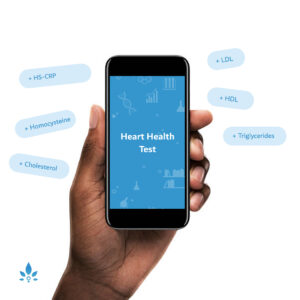10 Tips for Coping When Your Pregnancy or Delivery Doesn’t go as Planned


Unfortunately, complications do arise over the course of some pregnancies. Issues like gestational diabetes, preeclampsia, or bleeding may make a previously carefree pregnancy filled with anxiety, worry, and sadness. A delivery that comes too early or ends with a traumatic vaginal birth or unplanned C-section can also leave a new mother feeling sad during a time that is supposed to be filled with a joy.
Thankfully, if you find yourself in this scenario you need not feel alone nor suffer in silence. Here are 10 tips to help get you through these difficult times.
- Own your feelings and your grief. Your dream of a blissed-out pregnancy went up in smoke when you found out you were carrying triplets. OK. Time to take a few deep breaths and own the sadness you might feel and grieve the pregnancy you thought you’d experience. You can’t expect to move on without facing what you missed out on, because only then can you begin to process the pregnancy (or delivery) you did have.
- Check your guilt at the door. You may feel like you don’t deserve to be sad or angry because in the end you had a healthy baby. Or maybe your friend who can’t get pregnant has pointed out that at least you were able to have a child. Guilt is not helpful here, so erase “I should feel…” from your thoughts. You are allowed to feel how you feel, end of discussion.
- Tell those you love how you feel. Resist the temptation to answer, “I’m fine!” whenever a friend or family member asks how you’re doing. Most importantly, make sure your partner knows what’s going on in your brain. Women often want to be the backbone of their family and grin and bear it, but it is so important here to let those you love know what you are working through. Only then do you have a chance of getting the understanding and support you need.
- Get help! Speaking of support, get it! This can come in many forms: friends who’ve been in a similar spot, online groups created just for this, or in-person pregnancy or postpartum support groups. Ask your doctor, midwife, or lactation consultant about local support groups, as they might be the best source for what’s available near you.
- Control what you can, and let go of the rest. You can’t control that you had a traumatic C-section, but you can control how you recover. You can make sure you understand all the circumstances around your delivery by asking questions. Setting an appointment just to discuss this may help with your processing of the situation. The support of a good therapist can be priceless, since they can help you work through your pregnancy or delivery and understand how to let go of guilt and blame and playing the “what if” game.
- Know it is OK to not be happy all of the time. Even a new mom with a perfect pregnancy and birth will tell you this new life is not all roses and sunshine. Anyone with any sort of complication should only know this even more: it is OK to have hard days and weeks. Ignoring these feelings will only make them last longer. Most importantly, be aware of the signs of postpartum depression/anxiety so that if you fall into this category, you can get the help you need.
- Optimize your health, and consider medication if it is offered. You may want to never leave your bed and ignore the rest of the world during this stressful time, but this will only prolong your suffering. Try to make one good food choice daily and go from there. Healthy food, staying hydrated, getting outside, and exercising (when cleared medically) can do wonders for the depressed mind. And if your doctor or therapist thinks you need a course of antidepressants or other medication to bridge you, give it some serious consideration. Taking this does not mean you are weak or that you will need them forever (and many are safe with breastfeeding).
- Bond with your baby in a way that works for you. Once your baby arrives, you may be too emotionally depleted to immediately bond. Maybe you are too afraid since you almost lost her. In any case, know that bonding looks different for every family. Do what works for you—maybe it’s just sitting in the same room with your new baby for an hour a day while you get used to this new role as mother. With time, most new mothers do develop that infamous bond, but it can be normal for it to take time, patience, and practice.
- Let your doctor or midwife know how you felt about the pregnancy or delivery. It is so important for those caring for you medically to know what you went through. What might have seemed like a routine forceps delivery to your obstetrician may have been deeply traumatic for you, and they can’t know this unless you tell them. If it falls on deaf ears, tell another doctor or therapist. If you have a hard time expressing it, writing it down can be helpful.
- Know that next time can be different. Many women with difficult pregnancies or births carry that trauma into their next pregnancy. For these women, having a preconception visit can be priceless, since this can be a chance to discuss any fears about a future pregnancy. Having a game plan in place (a therapist to contact regularly, ways to make the next delivery less intimidating, possibly including the services of a doula) even before getting pregnant can get you on your best footing to a less stressful pregnancy, which every mother deserves.
Powered by Bundoo®













































